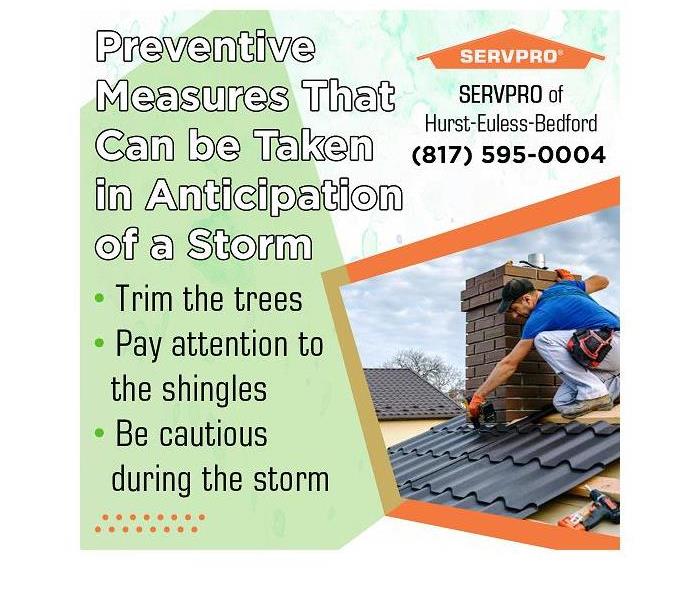How does lightning damage a house?
10/20/2021 (Permalink)
Blog summary: The SERVPRO article gives insight into the impact of lightning on a house. It also discusses simple measures for protection during a lightning storm.
When lightning strikes a house
Lightning is the occurrence of a natural electrical discharge of very short duration and high voltage between a cloud and the ground or within a cloud. This violent and sudden electrostatic discharge generates a bright flash and thunder. SERVPRO, a storm restoration company, explains the impact of a lightning strike on a house.
What Happens When Lightning Strikes a House
A cloud-to-ground lightning bolt will find the path of least resistance from the cloud to deep into the ground. Most houses have a path that the lightning can follow, causing immense damage in its wake. From gas and water pipes, electric lines, phone lines, cable TV/internet lines to gutters, downspouts, and metal window frames, any reasonable conductor becomes an opportunity for the lightning to continue its journey
Only a home with a professionally installed lightning protection system can prevent a direct lightning strike. It is important to be aware of how lightning can damage a house and the dangers it poses. Here are some damages that may occur to a house when lightning strikes:
- Shock wave damage: Lightning can crack and break bricks, concrete, stone, and even cinder blocks. It can damage chimneys which are made from brick and stone. Lightning's shock waves can blow out plaster walls, shatter glass windows, create trenches in soil, and crack foundations.
- Power surge damage: The electrical system of a house is the most common point of entry of increased voltage from a lightning or surge event. When lightning strikes a nearby power line, it can travel from the power line to the meter and then into the home’s electrical panel into the home’s wiring, burning the insulation and fusing the wires. It can travel through the wiring to the outlets and damage the electrical appliances as well. This can be a potential fire hazard as well.
- Fire damage: A house is made of highly flammable materials such as wood. As lightning travels through the house, it can easily ignite a fire. The attic or the roof is the most common area where lightning can start a fire since it has to pass through some structural material before reaching a conductive path. As the wiring or the pipes come in contact with lightning, a fire hazard becomes a very imminent possibility.
Preventive measures
It is always wise to take preventive measures in anticipation of a storm.
- Trim the trees: Tall objects attract lightning. A tall tree near a house can become a possible direct route for lightning to enter the house. So trimming the trees close to the house is a safety measure homeowners can take.
- Pay attention to the shingles: Repair and replace shingles that are damaged or missing to protect the house from a devastating lightning strike. Ideally, replace shingles made from wood with shingles made from fire-resistant asphalt, tile, or metal to prevent possible fires.
- Be cautious: During the storm, avoid direct contact with any potential lightning routes. Appliances or landlines should be avoided. Do not take a bath or do dishes during the storm. And unplug the computers and large appliances.
Why SERVPRO?
- SERVPRO uses state-of-the-art equipment to bring the damaged property back to its original state. SERVPRO of Hurst-Euless-Bedford is always updating its fleet and equipment so clients in Hurst, Euless, Bedford, or anywhere else can quickly access the services.
- With over 1,700 US and Canadian Franchise locations, SERVPRO is strategically positioned to respond faster to an emergency of any magnitude.
- The SERVPRO staff is highly trained in property damage restoration. They receive initial in-house training and constant skill up-gradation at the corporate training facility and also acquire the regular IICRC-industry certification.
For storm damage restoration services, call SERVPRO® of Hurst-Euless-Bedford today at (817) 595-0004 or e-mail at office@SERVPROheb.com






 24/7 Emergency Service
24/7 Emergency Service
